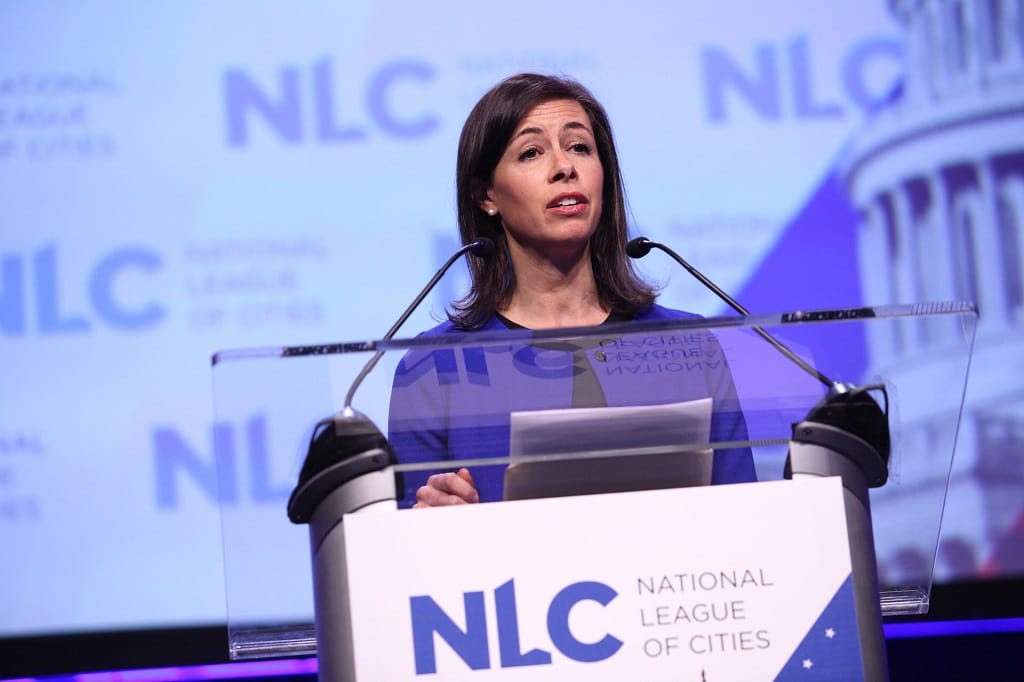FCC’s Rosenworcel Acknowledges Demand for Covid Broadband Program Will ‘Outlast’ Crisis
Acting chairwoman said the need for the Emergency Broadband Benefit will outlive the pandemic.

June 30, 2021–The increasing number of households that have so far enrolled in the Federal Communications Commissions’ Emergency Broadband Benefit program suggests the program’s demand will go beyond the life of the pandemic, the agency’s Acting Chairwoman Jessica Rosenworcel said Tuesday.
“With these enrollment numbers at this stage of the crisis, I think it’s clear that the need for the Emergency Broadband Benefit or something similar will outlast Covid-19,” Rosenworcel said at a discussion with the Benton Institute on Tuesday.
Over three million households have enrolled in the Federal Communications Commissions’ Emergency Broadband Benefit program since its launch last month. The temporary program provides a subsidy of up-to $50 per month—or $75 in tribal areas—to pay for internet service.
The EBB program will expire when the entirety of the $3.2-billion budget is used up or six months after the pandemic ends, whichever is sooner.
Rosenworcel’s comments come as experts call on Congress to recognize the need for long-term solutions to ensure students, who must complete virtual studies at home, are supplied with adequate connectivity.
“There’s a window of opportunity while the Emergency Broadband Benefit is available to design a permanent broadband benefit that will keep low-income folks connected once the program ends,” said Joi Chaney, executive director of the National Urban League’s Washington Bureau at a Connected Roundtable this month.
“Now is the time—while policymakers are acutely aware of the plight of the disconnected—to solve both rural and urban problems contributing to the digital divide.”










